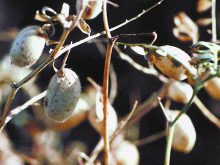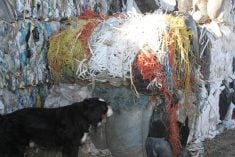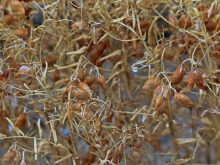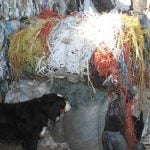While its first-ever quarterly financial report was written in red ink,
Agricore United is headed in the right direction, says a senior company
official.
“We’re on track and we’re a number of months ahead of where we thought
we’d be,” said chief executive officer Brian Hayward.
In its first three months of operations, the newly formed company has
closed elevators, cut staff and eliminated debt.
The bottom line for the three months ending Jan. 31 showed a net loss
Read Also

Message to provincial agriculture ministers: focus on international trade
International trade stakeholders said securing markets in the face of increasing protectionism should be the key priority for Canada’s agriculture ministers.
of $11.8 million, or 29 cents a share.
There is no comparative figure for last year, because AU did not exist.
However, the company did provide figures comparing some of AU’s
quarterly numbers with the combined results of Agricore and United
Grain Growers during the same period.
They showed AU had a net operating loss of $9.5 million compared with
earnings of $12.4 million in the same period last year for UGG and
Agricore. Those numbers reflect earnings before interest and taxes, or
EBIT.
Another measure of financial performance known as EBITDA, or earnings
before interest, taxes, depreciation and amortization, was $10.8
million in the black, down from $35.1 million for the combined
Agricore-UGG result a year earlier.
Cash operating expenses, excluding depreciation, were about nine
percent lower.
“We are not disappointed with the results, given the impact of the
drought,” Hayward said.
Last year’s small crop and the continuing dry conditions across much of
the Prairies this winter has affected grain volumes and farm input
sales across the industry.
AU saw its country grain handlings drop by 19 percent during the
quarter, to 2.9 million tonnes. For the first six months of the 2002
fiscal year, handlings are down 12.3 percent.
That’s slightly better than the 13.2 percent industry-wide decline,
enabling AU to maintain its market share. But it still took a big bite
out of corporate earnings.
Hayward said every additional tonne of grain handled translates into
$15-$20 of gross profit and the same amount of EBIT.
Grain handling operations provided EBIT of $10.9 million in the
quarter, down from $20.4 million a year earlier. For the year to date,
earnings are $10.4 million, down from $28.1 million.
Shipments are expected to wind down with the crop year, although
Hayward said the impact on AU may be cushioned because it has fewer
elevators in Saskatchewan, the area hardest hit by last year’s drought.
On the farm input side, fertilizer sales are down from a year ago,
because farmers have delayed their purchases while waiting for signs of
spring moisture. Gross profits from farm sales were down by half during
the quarter.
Livestock operations produced record sales and increased earnings,
while AU’s publishing arm also generated higher earnings.
Hayward said the company has made “tremendous progress” in the
challenging task of combining the operations of Agricore and UGG,
adding the merger will be “substantially complete” by late summer or
early fall.
He said the new firm has already achieved $12 million in cost savings
and expects to achieve its target of reducing costs by $24.7 million in
its first 12 months of operations, and $49 million by July 31, 2003.
Some of those savings have come at the expense of employees, as the
company has slashed its work force to about 2,700 employees, down 400
since the Nov. 1 merger.
AU has also closed 26 country elevators, leaving it with about 120. The
company will close more over the next few months as it empties older
elevators and moves toward its long-term target of 65 or 70 facilities.
The company has also implemented new financial management programs to
reduce its debt, which is projected to decline from $750 million at the
time of the merger, to $500 million by July 31, 2002. That will produce
a debt to equity ratio of 50:50, down from 63:47 a year earlier.














